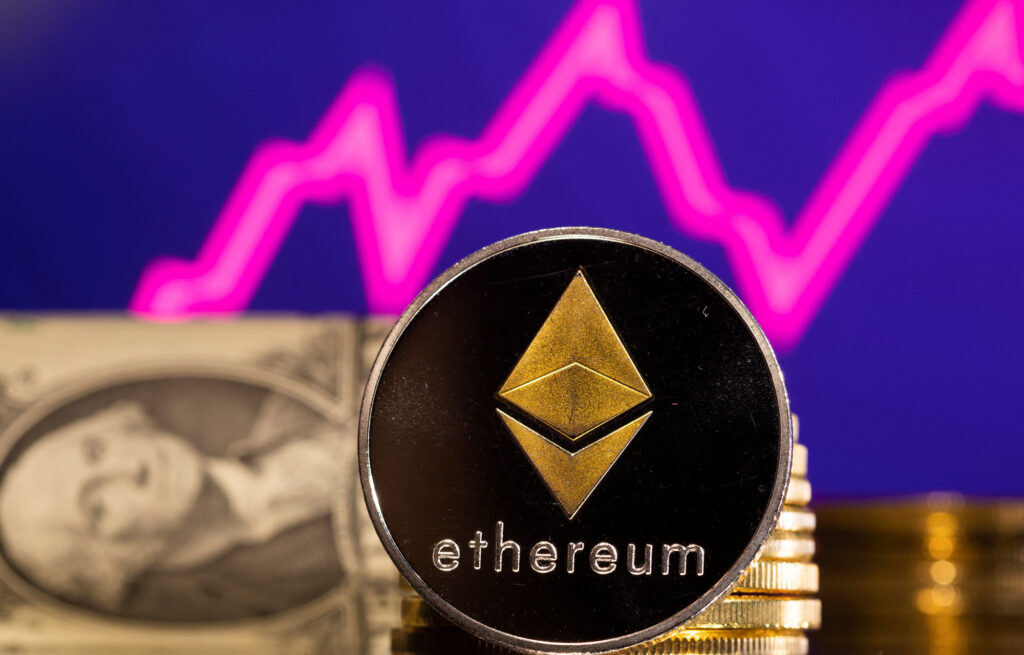Asset management firm Vanguard may not be directly offering Bitcoin exchange-traded funds (ETFs) on its platform, but it has a notable connection to the cryptocurrency space through its ownership of a substantial stake in MicroStrategy (MSTR).
As of September 2023, Vanguard Group was found to hold a significant 8.24% ownership stake in MicroStrategy, making it the second-largest institutional shareholder in the company, with a whopping 1,126 million MSTR shares in its portfolio, according to data from Yahoo Finance.
Moreover, MicroStrategy’s stock also features in the holdings of several of Vanguard’s mutual funds, including the Vanguard Total Stock Market Index Fund, Vanguard Small-Cap Index Fund, Vanguard Extended Market Index Fund, and Vanguard Small-Cap Growth Index Fund.
MicroStrategy itself has established a robust connection with Bitcoin, with its balance sheet carrying a substantial exposure to the cryptocurrency.
Over the past years, MicroStrategy and its subsidiaries have accumulated a total of 189,150 BTC, with a collective purchase price of approximately $5.9 billion.
READ MORE: U.S. SEC Approval of Bitcoin ETF Sparks Global Crypto Market Frenzy
This has led some analysts to characterize MicroStrategy as essentially functioning as a leveraged Bitcoin ETF, given the significant impact of Bitcoin on its stock price in 2023.
In contrast, Vanguard has maintained a somewhat distant stance from the cryptocurrency market.
Despite the debut of spot Bitcoin ETFs by several asset managers on major Wall Street exchanges on January 11, Vanguard chose to block the purchase of such products.
They cited a misalignment with their vision and emphasized their focus on traditional asset classes like equities, bonds, and cash, which they consider the foundational components of a well-balanced, long-term investment portfolio.
Nonetheless, Vanguard’s indirect yet substantial exposure to Bitcoin through its MicroStrategy holdings implies that fluctuations in Bitcoin’s price can affect the performance of its mutual funds and the value of its MSTR shares.
For Vanguard clients, this represents an indirect means of gaining exposure to the cryptocurrency through the firm’s investment platform.
In the rapidly evolving crypto landscape, various firms anticipate a surge in Bitcoin-related products in the coming months, including leveraged and short Bitcoin ETFs, as well as crypto loans collateralized by Bitcoin.
In Rosario, the third-largest city in Argentina, a unique rental agreement has been struck between a local landlord and a tenant.
This groundbreaking contract marks the first instance in Argentina where monthly rent will be paid in Bitcoin.
This innovative arrangement was made possible by recent legislative changes implemented by the country’s new presidential administration.
Under the terms of this historic contract, the tenant will be responsible for making monthly payments equivalent to $100 in Bitcoin.
These transactions will be facilitated through Fiwind, a local cryptocurrency platform.
Notably, both parties involved in this contract are experienced cryptocurrency users, signaling a growing acceptance of digital currencies in the region.
The shift towards embracing cryptocurrencies in Argentina can be attributed to the reforms introduced by President Javier Milei, who assumed office after winning the general election in November 2023.
READ MORE: How Playable Ads Are Set to Reinvigorate the Streaming and Digital Content Industry
The nation was grappling with soaring inflation rates, prompting the need for significant changes in vario
us aspects of the legal system, including rental laws.
In December 2023, Diana Mondino, the Minister of Foreign Affairs, International Trade, and Worship, announced a pivotal decree aimed at promoting economic reform and deregulation.
This decree opened the door for the utilization of Bitcoin and other cryptocurrencies within the country, albeit with certain conditions.
One of the notable changes in the regulatory landscape was the government’s efforts to facilitate the legalization of cryptocurrency holdings, even for individuals who were behind on their tax declarations.
A regularization scheme was introduced, allowing taxpayers to declare their cryptocurrency assets with a flat tax rate of 5% if done by the end of March 2024.
This rate would then increase to 10% from April and further to 15% from July until the end of September.
These recent developments signify Argentina’s growing recognition of the potential of cryptocurrencies as a viable means of conducting financial transactions and fostering economic growth.
With this groundbreaking rental agreement in Rosario, the country takes another step towards embracing the digital currency revolution, potentially setting a precedent for similar arrangements in the future.
Ether has surged over 20% against Bitcoin within just 72 hours, and traders are anticipating further upward movement.
Data from Cointelegraph Markets Pro and TradingView reveals that ETH/BTC, which hit yearly lows of 0.0478 on January 9th, has now climbed to 0.0587.
ETH/USD is also experiencing a breakout, reaching levels not seen on the chart since mid-2022.
A bullish divergence on the moving average convergence divergence (MACD) indicator on weekly timeframes against Bitcoin has caught the attention of popular traders.
This week, Ethereum, the largest altcoin, has outperformed Bitcoin in terms of returns, even as Bitcoin celebrates the launch of spot exchange-traded funds (ETFs) in the United States.
Despite BTC/USD reaching its highest levels since the post-ETF announcement in December 2021, Ether’s resurgence seems to overshadow it.
The anticipation of Ethereum’s U.S. ETF debut later in the year has added to the bullish sentiment.
BlackRock’s CEO, Larry Fink, who recently released a Bitcoin ETF, expressed interest in a similar move for Ether, which further fueled optimism around Ethereum.
READ MORE: Turkey Gears Up for Cryptocurrency Regulation Overhaul
“Larry Fink is already beating the Ethereum drum. One day after the Bitcoin launch,” responded trader and analyst Scott Melker, also known as “The Wolf Of All Streets,” on X (formerly Twitter). “The rotation is real.”
Looking ahead, Michaël van de Poppe, founder and CEO of trading firm MNTrading, believes that Ether will continue to gain ground against Bitcoin as part of the overall cryptocurrency market cap.
He suggested that Bitcoin’s dominance appears to have peaked, especially in anticipation of the Bitcoin halving.
“Expecting to see a continuation as Ethereum is taking more momentum.
This might be the cycle’s high on the Dominance as the altcoin bull market has started,” said Van de Poppe.
He also pointed out that attention may shift away from BTC/USD until after the block subsidy halving in April, which is considered a price catalyst, albeit not an immediate one.
Meanwhile, the ETF narrative suggests a potential Bitcoin supply squeeze as institutions seek long-term exposure to BTC.
This factor could further impact the dynamics between Ethereum and Bitcoin in the coming months.
The United States House of Representatives Financial Services Committee (FSC) has taken a significant step in addressing the growing impact of artificial intelligence (AI) on the financial services and housing industries.
On January 11, 2024, FSC Chairman, Representative Patrick McHenry, and Representative Maxine Waters jointly announced the establishment of a bipartisan Working Group on Artificial Intelligence.
The primary objective of this working group is to delve into the multifaceted implications of AI in the financial services sector.
This includes an examination of how AI is reshaping the financial services workforce by driving the development of new products, fortifying defenses against fraud, streamlining compliance processes, and bolstering regulatory tools.
Another critical aspect of the group’s mission is to scrutinize the existing regulatory framework governing AI usage and ascertain that any new regulations are well-balanced, taking into account both the potential benefits and inherent risks associated with AI deployment.
This endeavor builds upon the groundwork laid by the Task Force on Artificial Intelligence in the 116th and 117th Congresses.
It is worth noting that this newly formed working group differs from the one established by the New Democratic Coalition in August 2023.
While both groups share a common objective of crafting bipartisan policies to address the evolving AI landscape, the FSC’s AI working group boasts a truly bipartisan composition, comprising members from both the Democratic and Republican parties.
READ MORE: DeRec Alliance Unveils Ambitious Plan for Decentralized Digital Asset Recovery System
Heading the bipartisan group are Representative French Hill, Chairman of the Digital Assets, Financial Technology, and Inclusion Subcommittee, and Representative Stephen Lynch.
This dedicated team brings together a diverse set of perspectives and expertise to tackle the complex issues surrounding AI.
Among the group’s Republican members are McHenry, Hill, Young Kim, Mike Flood, Zach Nunn, and Erin Houchin.
On the Democratic side, Waters, Lynch, Sylvia Garcia, Ayanna Pressley, Sean Casten, and Brittany Pettersen round out the lineup.
This development aligns with President Joe Biden’s Executive Order from October 30, 2023, which places a significant emphasis on the responsible development and use of AI.
The newly formed FSC working group will play a pivotal role in assessing and implementing the directives outlined in the Executive Order within the committee’s purview.
As AI continues to reshape the financial landscape, this bipartisan initiative signifies a commitment to ensuring that AI benefits are harnessed responsibly while mitigating potential risks.
Following the recent approval by the United States Securities and Exchange Commission (SEC) of spot Bitcoin exchange-traded funds (ETFs), SEC Commissioner Mark Uyeda has expressed significant reservations regarding several aspects of the approval process.
While Uyeda voted in favor of the groundbreaking decision to approve these Bitcoin ETF applications, he voiced concerns about the underlying analytical approach adopted by the commission.
One of Uyeda’s primary concerns revolves around the potential long-term repercussions of the SEC’s reasoning in the approval order.
He worries that the flawed rationale and legal analysis employed in this case may serve as a precedent for future decisions, impacting the crypto industry for years to come.
Uyeda’s foremost objection centers on the SEC’s differentiation between Bitcoin and other commodities.
He believes that Bitcoin should be treated on par with other commodities and criticizes the commission’s use of the “significant size” test as a unique benchmark for spot Bitcoin ETP (exchange-traded product) applications.
According to Uyeda, spot Bitcoin ETPs should have been approved much earlier under this standard, and he questions why they continue to be treated differently than Bitcoin futures ETPs under the “significant market” test.
Although none of the Bitcoin ETF applicants met the SEC’s significant market test, the approval cited “other means” that satisfied the requirements.
Uyeda contends that the SEC’s decision to introduce a new standard after applicants spent years pursuing the significant market requirement was unjust.
He argues that the commission should have communicated its expectations more clearly to applicants, rather than forcing them to make multiple attempts with uncertain criteria.
Furthermore, Uyeda suspects that the SEC’s motivation for expediting the approval of spot Bitcoin ETFs was to gain a competitive advantage.
He points out a lack of analysis concerning how the cash-only creation and redemption feature might prevent fraudulent activities.
He emphasizes the importance of transparency in the analysis and reasoning behind approval orders.
In a somewhat contradictory stance, Uyeda ultimately supports the issuance of the approval order, despite his objections to the legal analysis presented in it.
He cites independent reasons for concluding that the applications met the approval standards outlined in the Exchange Act.
Nonetheless, his critique underscores the need for greater clarity, consistency, and fairness in the SEC’s approach to regulating cryptocurrency-related financial products.
Ethereum’s community is currently embroiled in a debate sparked by Vitalik Buterin’s recent proposal to increase the gas limit on the network.
Buterin’s suggestion, made on January 11th, called for a “modest” 33% boost in the gas limit, aiming to enhance network throughput.
The proposed gas limit increase from the current 30 million to 40 million would potentially allow more transactions per block, thereby increasing the network’s overall throughput and capacity.
However, Ethereum developer Marius van der Wijden raised some concerns about this move in a blog post titled “Why increasing the gas limit is difficult.”
One of the primary concerns is the expansion of the blockchain state, which encompasses account balances and smart contract data.
Currently, the state requires approximately 267 gigabytes (GB) of storage space, and increasing the gas limit would only exacerbate this issue.
While storage costs may be relatively low, accessing and modifying this expanding data would become progressively slower, with no clear solutions for managing state growth.
Furthermore, increasing the gas limit would also lead to longer synchronization times and complicate the development of diverse Ethereum clients, according to Wijden.
READ MORE: Congress Calls for Investigation into SEC Following Twitter Account Compromise
Gnosis co-founder Martin Köppelmann echoed these concerns, highlighting the potential bandwidth increase associated with raising the gas limit.
Péter Szilágyi, Ethereum’s team lead, also acknowledged the downsides of increasing the gas limit, emphasizing the faster growth of the state, the quicker slowdown of synchronization, and the heightened potential for denial-of-service (DoS) attacks.
The gas limit represents the maximum amount of work and gas expended when executing Ethereum transactions or smart contracts in each block.
It serves to maintain block sizes within reasonable limits to preserve network performance and synchronization.
Potential solutions to these challenges include proposed upgrades such as EIP-4444, addressing chain history expiration, and EIP-4844, which introduces “blobs” to improve rollup data availability and mitigate long-term growth trends.
Software developer Micah Zoltu contributed to the discussion, emphasizing the importance of enabling real-world users to run Ethereum nodes on everyday machines.
However, achieving this goal becomes more challenging as the state and full blockchain size continue to expand, emphasizing the need for a holistic approach to Ethereum’s scalability and accessibility.
The recent decision by the United States Securities and Exchange Commission (SEC) to approve the country’s first spot Bitcoin exchange-traded funds (ETF) has sent ripples of excitement through both the traditional finance (TradFi) and decentralized finance (DeFi) spaces.
This historic decision has sparked curiosity about its potential impact on the markets and, of course, on the price of Bitcoin itself.
Across the Atlantic in Europe, however, the excitement surrounding a Bitcoin ETF has already somewhat subsided. Europe witnessed the introduction of its first spot Bitcoin ETF on August 15, 2023.
The Jacobi FT Wilshire Bitcoin ETF made its debut on the Euronext Amsterdam stock exchange, more than a year after its originally planned launch.
This pioneering ETF was issued by Jacobi Asset Management, a London-based firm.
What set the Jacobi Bitcoin ETF apart was that it was the first physical-backed Bitcoin fund, offering investors exposure to a financial product backed by actual Bitcoin.
Moreover, it was classified as an “environmental investing” or Article 8 fund, promoting environmental and/or social characteristics.
Grzegorz Drozdz, a market analyst at the European Union-based financial services platform Conotoxia, discussed the market implications of U.S. spot Bitcoin ETFs, particularly from a European perspective.
READ MORE: SEC Renews Warning on FOMO Crypto Investing Ahead of Expected Bitcoin ETF Approvals
He noted that the introduction of Bitcoin ETFs has significantly democratized access to the crypto market, moving beyond traditional cryptocurrency exchanges and wallets.
However, Drozdz pointed out that while Bitcoin ETFs are making waves, their size is still relatively small compared to the overall financial and crypto market.
The total capitalization of the cryptocurrency market stands at $1.78 trillion, and existing investment funds in this sector represent only 2.9% of this total value.
In the European Economic Area, there seems to be a greater openness to institutional investment in cryptocurrencies with the launch of Bitcoin ETFs.
However, Drozdz observed that these funds have not yet generated substantial inflows from institutions in Europe. Market expectations are currently more focused on the potential approval of such instruments in the U.S., which could have a more significant impact on the long-term development of the crypto world.
Despite the uncertainties, Drozdz emphasized the rapid increase in the inflow of new funds into the Bitcoin ETF space, which could potentially signal the start of a new bull market.
Given that Bitcoin still commands a substantial 53.7% share of the market’s capitalization, its success could have a significant ripple effect on the rest of the digital currency market.
This sentiment aligns with the speculations of other analysts and social media communities as they await the SEC’s decision on Bitcoin ETFs.
Bitcoin surged towards its recent high as Wall Street opened its doors on January 11th, as new U.S. macroeconomic data put inflation back on the radar. In the pre-market trading hours, Bitcoin’s price exhibited volatility, primarily hovering around $47,000.
The December Consumer Price Index (CPI) report defied expectations, revealing that inflation was accelerating faster than anticipated.
The month-on-month CPI showed a 0.3% increase, surpassing the expected 0.2%.
Furthermore, on a year-on-year basis, the index rose by 3.4%, exceeding the anticipated 3.2%, according to data from the U.S. Bureau of Labor Statistics.
This data confirmed a larger increase in the all-items index for the 12 months ending in December compared to November.
Although such reports usually trigger fluctuations in risk assets, this time they added to the already existing tension in the cryptocurrency markets.
On January 10th, the first U.S. spot Bitcoin exchange-traded fund (ETF) received approval, and its inaugural trading day was set for January 11th. Pre-market data indicated strong investor interest ahead of the ETF’s debut.
On that day, BTC/USD on Bitstamp briefly surpassed $47,700 but remained within its established range, with $48,000 acting as a resistance level.
READ MORE: SEC Renews Warning on FOMO Crypto Investing Ahead of Expected Bitcoin ETF Approvals
Prominent trader Jelle emphasized that shorting Bitcoin at this point was unwise, predicting an eventual upward acceleration.
Meanwhile, Ethereum outshone Bitcoin, with its 24-hour gains exceeding 10%.
This surge was attributed to traders shifting their focus to Ethereum after the ETF approval, as they didn’t witness the expected pump in Bitcoin’s price.
Crypto Tony, another trader, noted this shift in investor sentiment, driving ETH/USD to reach $2,666 on Bitstamp, its highest level since May 2022.
Other cryptocurrencies, such as Solana’s SOL and XRP, also posted double-digit gains.
In conclusion, Bitcoin’s price rallied as U.S. inflation data surprised investors, while the approval of the first U.S. Bitcoin ETF added to the cryptocurrency market’s anticipation.
Despite the volatility, Bitcoin remained within its established range, and Ethereum stole the spotlight with significant gains.
These developments illustrated the continued interest and resilience of the cryptocurrency market in the face of economic data and regulatory advancements.
On January 11, prominent figures from the Hedera and Algorand ecosystems, including the HBAR Foundation and Algorand Foundation, made an exciting announcement at the Crypto Finance Conference in St. Moritz.
Leemon Baird, co-founder of Hedera, and John Woods, Chief Technology Officer of the Algorand Foundation, introduced a groundbreaking initiative known as the DeRec Alliance, aimed at creating a decentralized recovery system for digital assets.
The primary objective of the DeRec Alliance is to simplify the process of securing and recovering digital assets, aligning it with the user-friendly experiences commonly associated with Web2 platforms.
Baird emphasized the importance of establishing standards and open-source code across the blockchain industry to enhance safety within the evolving landscape of Web3.
He stressed the need to make key recovery user-friendly and called upon all blockchain entities to collaborate in creating compatible standards across different wallet software and blockchains.
Notably, Hedera and Algorand are not alone in this venture.
They have already garnered support from banks, credit unions, and multiple wallet software projects, showcasing a strong industry-wide commitment to this crucial initiative.
In conjunction with the DeRec Alliance, the Decentralized Recovery (DeRec) open-source protocol was introduced as a standardized approach to secret management.
READ MORE: SEC Forges Ahead with Bitcoin ETF Decision Despite Social Media Hack
This protocol is built on the concept of secret sharing among a designated group of helpers, whether they be friends or businesses, allowing users to recover their secrets when needed. Each helper’s share reveals no information about the original secret, ensuring security and privacy even if a user loses their recovery device.
John Woods emphasized the importance of a seamless user experience and the need to minimize risks associated with self-sovereignty.
The DeRec protocol achieves this by incorporating automatic confirmations for the retention of secret shares by helpers, automatic resharing when secrets change or helpers join or leave, and a system that protects the identities or numbers of helpers, keeping them unaware of each other.
This initiative is especially timely as the DeFi space grapples with ongoing security challenges.
Just a day prior to the DeRec Alliance announcement, the United States Commodity Futures Trading Commission released recommendations aimed at mitigating DeFi-associated risks, underscoring the industry’s need for enhanced security measures.
Inquiries were made to the developers for additional details about this groundbreaking initiative, which has the potential to significantly bolster the security and usability of digital assets in the evolving blockchain ecosystem.
Turkey’s Minister of Treasury and Finance, Mehmet Şimşek, has unveiled crucial details about the impending cryptocurrency regulations set to govern the Turkish market.
The government is actively working on legally defining vital cryptocurrency concepts, instituting licensing requirements for trading platforms, and adhering to the international standards outlined by the Financial Action Task Force (FATF).
In a recent interview with the Anadolu Agency on January 10, Şimşek confirmed that the framework for regulating cryptocurrencies in Turkey is nearing its finalization, with ongoing assessments of its technical implementation.
One of the central goals of these regulations is to minimize the risks associated with cryptocurrency trading for everyday investors, aligning Turkey’s practices with international norms. Şimşek emphasized,
“Therefore, we are taking steps to reduce the risks of parties trading with crypto assets in our country, similar to international practices.
This is also within the scope of FATF to get out of the gray list.”
The forthcoming guidelines will mandate that cryptocurrency platforms operating in Turkey acquire licenses from the country’s Capital Markets Board (CMB).
READ MORE: Nebraska Legislature Proposes Bill to Establish Crypto Standards
Moreover, these regulations will provide precise legal definitions for key terms such as “crypto assets,” “crypto wallets,” “crypto asset service providers,” “crypto asset custody service,” and “crypto asset buying and selling platforms.”
As an example, Şimşek clarified the definition of crypto assets as “intangible assets that can be created and stored electronically using distributed ledger technology or a similar technology, distributed over digital networks, and capable of expressing value or rights.”
However, it’s worth noting that the regulations will not encompass the specific tax treatment of virtual assets.
Turkey has been contemplating cryptocurrency regulations for a considerable period, with a primary focus on licensing and taxation measures aimed at removing the country from FATF’s “grey list.”
Notably, according to data from the blockchain analytics firm Chainalysis, Turkey ranked fourth globally in raw cryptocurrency transaction volumes between July 2022 and June 2023, with approximately $170 billion in crypto activity, trailing only the United States, India, and the United Kingdom in this regard.











